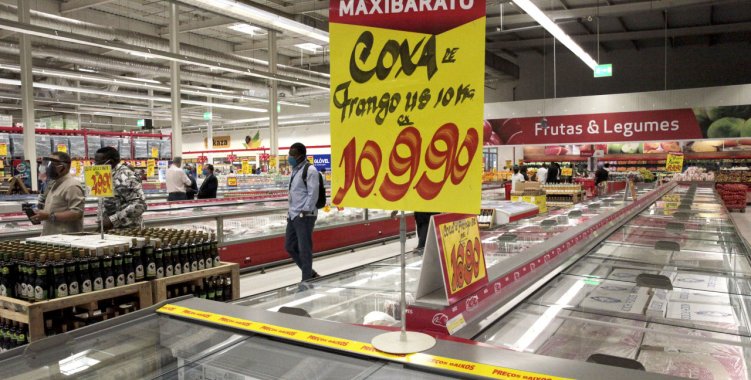Economists point out the challenges of inflation, which began, in year-on-year terms, an acceleration trajectory in May 2023, when it went from 10.62 percent to close the year at 20.01 percent, forcing the Policy Committee Monetary Authority (CPM) to take decisions in order to "control inflationary pressures".
Since the beginning of 2024, the BNA has increased the Basic Interest Rate by 1.5 percentage points (p.p.) to 19.5 percent, the Permanent Liquidity Absorption Facility (FPAL) Interest Rate by 1.0 p.p. to 18.50 percent, the Interest Rate of the Permanent Liquidity Lending Facility (FPCL) by 2.0 p.p. to 20.5 percent, the coefficient of mandatory reserves in national currency by 3.0 p.p. to 21 percent and maintained foreign currency reserves at 22 percent.
The central bank decided to keep reference interest rates unchanged at the last CPM meeting, held on Friday, when, despite the annual inflation rate accelerating to 31 percent in June, in monthly terms, there was a slowdown for two consecutive months, that is, in May it stood at 2.49 percent, a monthly deceleration of 0.12 p.p., while in June it stood at 2.07 percent.
"However, the BNA maintained the end-of-period inflation target at 23.4 percent, justified by the prospect that the monthly downward trend could contribute to a slowdown in year-on-year terms from August onwards", he highlights.
According to the analysis, for the medium term, "BNA's ambition is to bring inflation below double digits".
However, analysts consider that, despite the improvement in the supply of essential goods and the control of liquidity, "risks remain with the potential to condition the goals".
These risks include the exchange rate depreciation of the kwanza, induced by the reduction in exports and maintenance of import levels, the acceleration of inflation in the economies of origin of imports, the possibility of the Government making additional adjustments to fuel prices, within the scope of the process withdrawal of subsidies, whose implementation period is expected to last from 2023 to 2025.
"This reality could condition the BNA's monetary policy and require a cautious stance in the near future", declare the analysts.
In the analysis note, the economists highlight that the primary objective of the National Bank of Angola (BNA) is to ensure price stability, using several liquidity management instruments for this purpose: BNA Rate; Permanent Liquidity Absorption Facility (FPAL) Interest Rate; Permanent Liquidity Provision Facility (FPCL) Interest Rate; Mandatory Reservations; and Open Market Operations (OMA).







